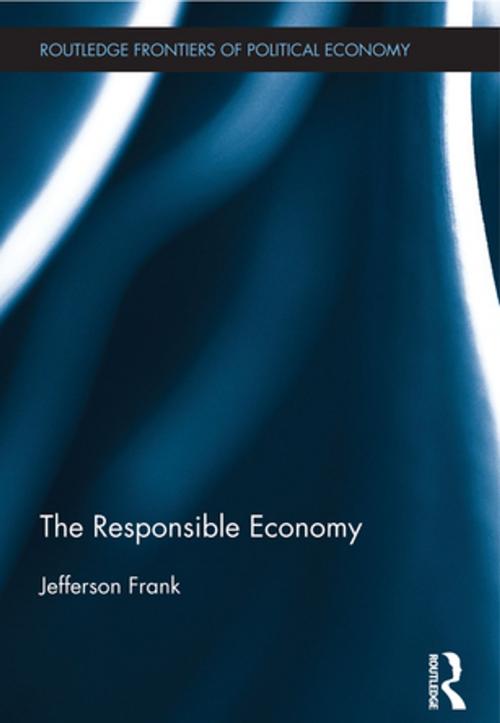| Author: | Jefferson Frank | ISBN: | 9781317594147 |
| Publisher: | Taylor and Francis | Publication: | May 8, 2015 |
| Imprint: | Routledge | Language: | English |
| Author: | Jefferson Frank |
| ISBN: | 9781317594147 |
| Publisher: | Taylor and Francis |
| Publication: | May 8, 2015 |
| Imprint: | Routledge |
| Language: | English |
After the ‘financial crisis’ and ‘Great Recession’, some have called for replacing standard economic theory by heterodox models based upon behavioural approaches. The Responsible Economy argues that there is nothing wrong with economic theory. Instead, the problem has been a ‘devil’s pact’ of simplistic pro-market economics combined with simplistic Keynesian monetary policy.
This book revisits the fundamental theorems in economics that state the conditions for markets to achieve efficiency. It has long been known that there are limitations of markets in dealing with externalities, increasing returns to scale and monopoly. The role of information in the economy was developed in economic theory in the 1970s onwards and in a world of imperfect and asymmetric information, markets perform poorly. Managers of firms engage in short-termism, take on excessive risk and misstate their own and their firm’s performance. While finance theory makes clear that much of the activity in the financial services sector is of no economic value and represents wasteful ‘financial engineering’. In this real world, it is economically inefficient for firms to maximise shareholder value. On the macroeconomics side, monetary expansion cannot be an effective substitute for addressing real problems of infrastructure and education investment.
This book maintains that markets work best if individuals and firms behave ethically and responsibly. Employment should be a long-term relationship; firms should pay living wages, produce good products at a fair price, and pay their share of taxes. Where these standards don’t hold, governments should not try to micromanage through regulation, but set up simple and straightforward policies.
After the ‘financial crisis’ and ‘Great Recession’, some have called for replacing standard economic theory by heterodox models based upon behavioural approaches. The Responsible Economy argues that there is nothing wrong with economic theory. Instead, the problem has been a ‘devil’s pact’ of simplistic pro-market economics combined with simplistic Keynesian monetary policy.
This book revisits the fundamental theorems in economics that state the conditions for markets to achieve efficiency. It has long been known that there are limitations of markets in dealing with externalities, increasing returns to scale and monopoly. The role of information in the economy was developed in economic theory in the 1970s onwards and in a world of imperfect and asymmetric information, markets perform poorly. Managers of firms engage in short-termism, take on excessive risk and misstate their own and their firm’s performance. While finance theory makes clear that much of the activity in the financial services sector is of no economic value and represents wasteful ‘financial engineering’. In this real world, it is economically inefficient for firms to maximise shareholder value. On the macroeconomics side, monetary expansion cannot be an effective substitute for addressing real problems of infrastructure and education investment.
This book maintains that markets work best if individuals and firms behave ethically and responsibly. Employment should be a long-term relationship; firms should pay living wages, produce good products at a fair price, and pay their share of taxes. Where these standards don’t hold, governments should not try to micromanage through regulation, but set up simple and straightforward policies.















